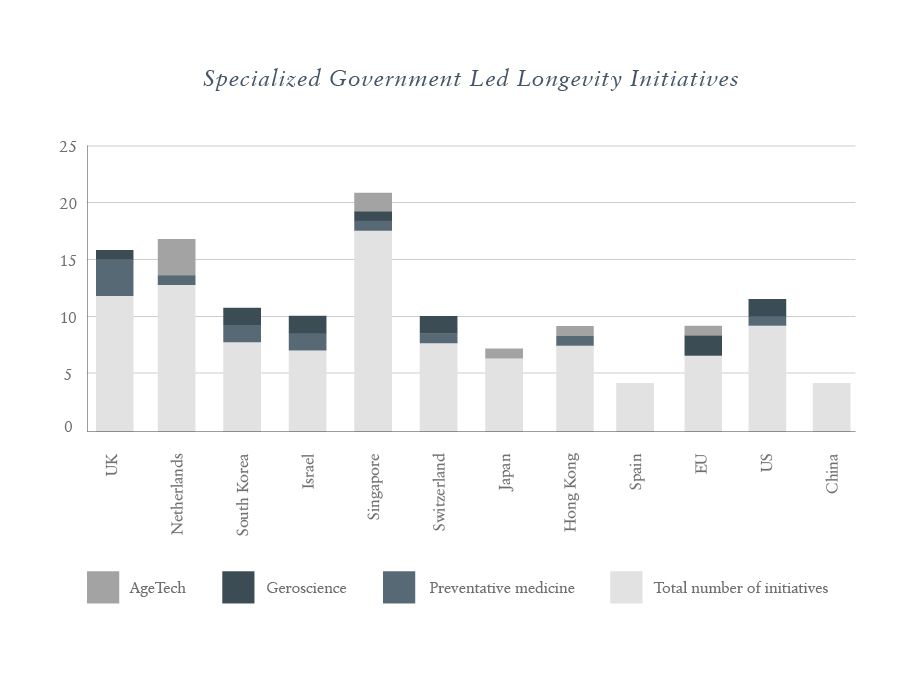
Kate Batz is a Managing Partner at Longevity Capital and a Director of Strategy and Business Development at Deep Knowledge Ventures, Aging Analytics Agency, and Deep Knowledge Analytics. She is an experienced corporate attorney by background, licensed to practice law in California (2003), New York (2004), and Russia (2000).

Alex Cresniov serves as Director of Deep Knowledge Analytics and is the author of numerous DeepTech and GovTech reports.
Traditionally, retirees from prosperous countries have usually chosen to relocate to regions with favorable weather and affordable, enjoyable lifestyles. Among the key factors that make such regions attractive are their relatively inexpensive healthcare systems and other cost savings combined with their high standards of living.
Some of the best examples of successful government strategies to encourage retiree immigration are found in Caribbean and Central American countries that offer various perks. Ecuador, for instance, allows one to import household goods duty free, Panama permits one to import an unlimited amount of used goods duty free, including a car, and Mexico offers discounts to retirees on everything from airfares to utilities, and expatriates are offered discounts on medications and medical care as well as job training and placement services through its Instituto Nacional de las Personas Adultas Mayores.
US expatriates are required to file annual tax returns. However, the Internal Revenue Service allows retirees living overseas to exempt the first USD 92,900 in earned income from US taxes. While some retirement destination countries, including Mexico, require expatriate retirees to file tax returns, others such as Nicaragua and Panama do not tax out-of-country income.
Argentina, Belize, Brazil, Chile, Colombia, the Dominican Republic, Ecuador, Mexico, Nicaragua, Panama, and Uruguay are responding to the growing trend among retirees seeking options in warm countries with good healthcare and other benefits and are increasingly focusing on building an industry around Longevity — and wealthy retirees in particular.

Longevity is a trending topic now that the elderly (namely, individuals aged 60 years and older) is the fastest growing demographic group. The proportion of the world's population aged over 60 years is projected to increase to 22% by 2050 — nearly double what it was in 2015 (12%). Today, older adults represent a dynamic emerging market and experienced talent pool, and many national governments are therefore focusing on their aging populations and prioritizing Longevity as a part of their national strategies.
The multi-trillion market of 1 billion people currently in retirement can be thought of as the world’s eighth continent. According to UN data there were 703 million individuals aged 65 years or over in the world in 2019 and this number is projected to more than double to 1.5 billion by 2050.
The size of the global Longevity economy reached USD 17 trillion in 2019 and has exhibited consistent enough growth to achieve USD 27 trillion by 2026. According to the most conservative estimates, this would comprise 20% of the global GDP. The Age-Tech segment alone is projected to reach a remarkable USD 2.7 trillion by 2025, representing 21% annual growth, which will be driven by the general development of the elderly care sector enhanced by advancing IT, FinTech, and other digital technologies and solutions.
An emerging concept associated with the Longevity industry is Longevity governance strategy, whereby forward-thinking countries are developing approaches to support their elderly populations. These Longevity-progressive governments embrace progress in all sectors of the Longevity industry to maximize the health, wealth, and wellness of their citizens. As a result, their citizens can expect to live healthier, happier, and longer lives. In the near future, Longevity may well become a major electoral talking point and policy priority that could determine the success of parties and politicians.
Longevity strategies may include complex policies such as financial optimization, healthcare accessibility, and precision medicine, all of which would encourage retirees to migrate to Longevity-progressive countries. Furthermore, countries that adopt successful national Longevity strategies and offer residence or citizenship status to incoming foreign retirees in return for investment could see the emergence of a new trend — Longevity migration.
There are numerous examples of successful Longevity governance strategies, and among them are initiatives for preventive medicine approaches to aging, such as the UK’s Genomic Medicine Service and the Swiss Personalized Health Network. There are also financial innovations such as the Swiss city of St. Gallen’s elderly care bank, whereby retired volunteers ‘deposit’ the hours they have worked looking after elderly people and in return can use any time saved up for their own care provision later in life.
Numerous countries have developed lifestyle and fitness programs. For example, Japan has plans for an ageless society and encourages senior citizens to stay healthy and remain active for life, while Singapore is building smart homes and developing residential master plans focused on improving the elderly’s quality of life and well-being and increasing their digital literacy. Another great example is the Seoul Metropolitan Government’s ‘2020 Master Plan for the Aged Society’, which supports a lifestyle designed for the elderly including customized jobs, healthy old age, comfortable living environments, a vibrant recreational culture, respect, and intergenerational harmony.
Initiatives such as these, however, remain uncoordinated across the globe, and lack solid national and international development strategies.

Source: Kaminskiy, D, and Colangelo, M. Longevity Industry 1.0 –
Defining the Biggest and Most Complex Industry in Human History. NTZ, 2020, p. 86.
The idea of living longer and healthier is becoming increasingly popular and countries that successfully implement Longevity strategies may eventually attract more affluent retirees than those that do not. The existence of ‘Healthy Longevity Programs’ could become deciding factors for seniors, who may be more willing to relocate to countries where Longevity policies have been successfully implemented rather than solely prioritizing an affordable lifestyle and a temperate climate.
We predict that Healthy Longevity migration is projected to be among the leading migration trends in the next few years. However, more work needs to be done to establish and implement government-led national Longevity development plans and to integrate such initiatives into the full scope of the Longevity industry (biomedical, technological, financial), enabling synergy across government, industry, academia, as well as public and private sectors.
References
“Ageing and Health.” World Health Organization. World Health Organization, February 5, 2018.
Barrett, WP. “Considering a Retirement Abroad? Here Are Some Factors to Weigh.” Forbes. Forbes Magazine, November 27, 2019.
Kaminskiy, D, and Colangelo, M. Longevity Industry 1.0 – Defining the Biggest and Most Complex Industry in Human History. NTZ, 2020.
“Seoul.” Age-Friendly World. World Health Organization. Accessed March 26, 2021.
United Nations, Department of Economic and Social Affairs, Population Division. World Population Ageing 2019 – Highlights. United Nations. New York, 2019.